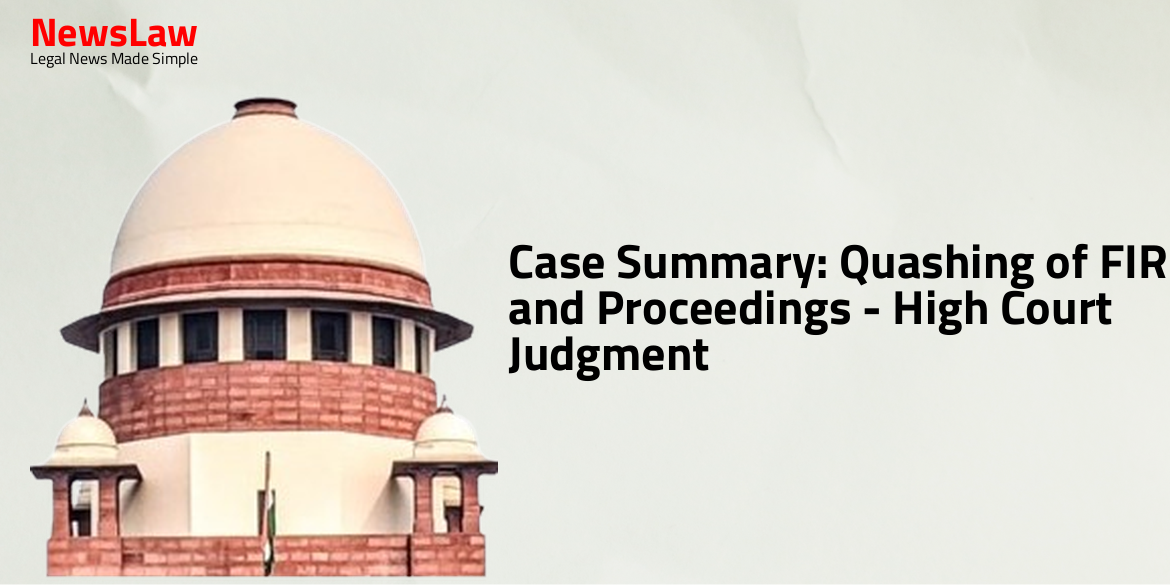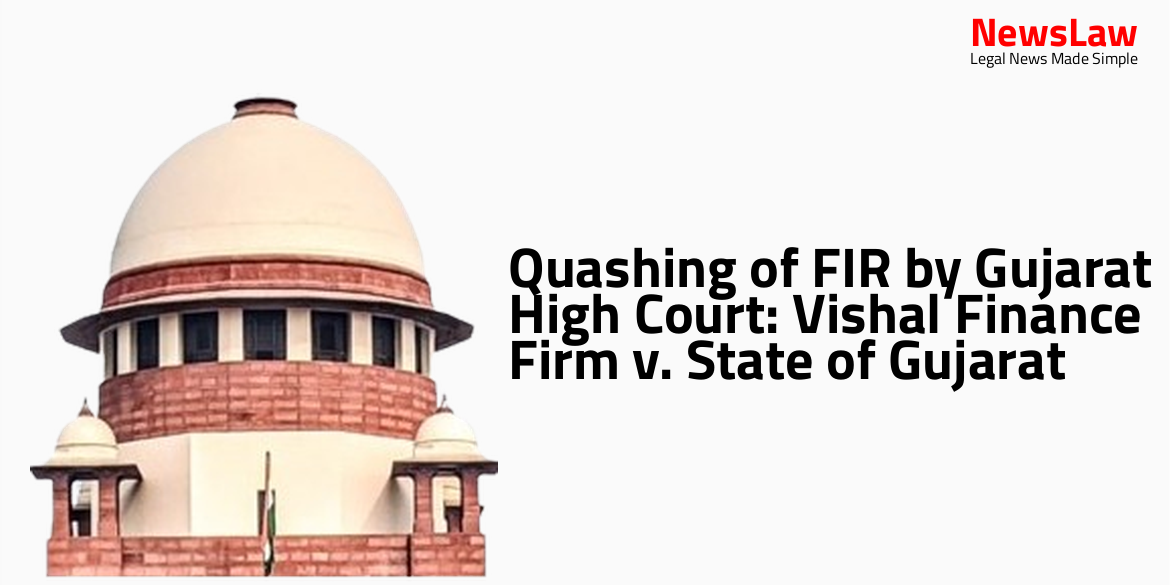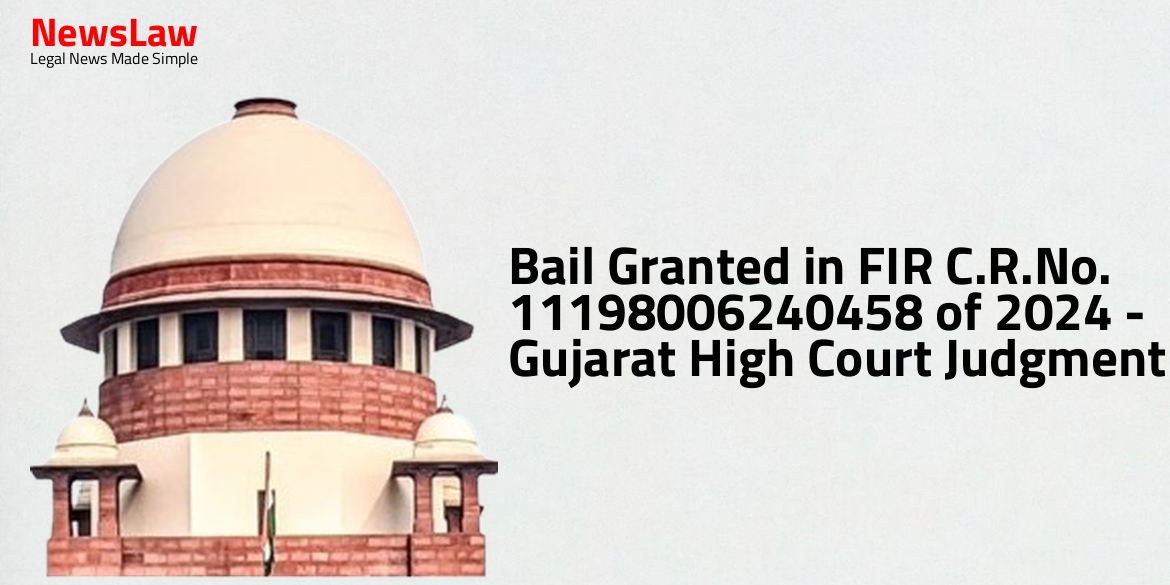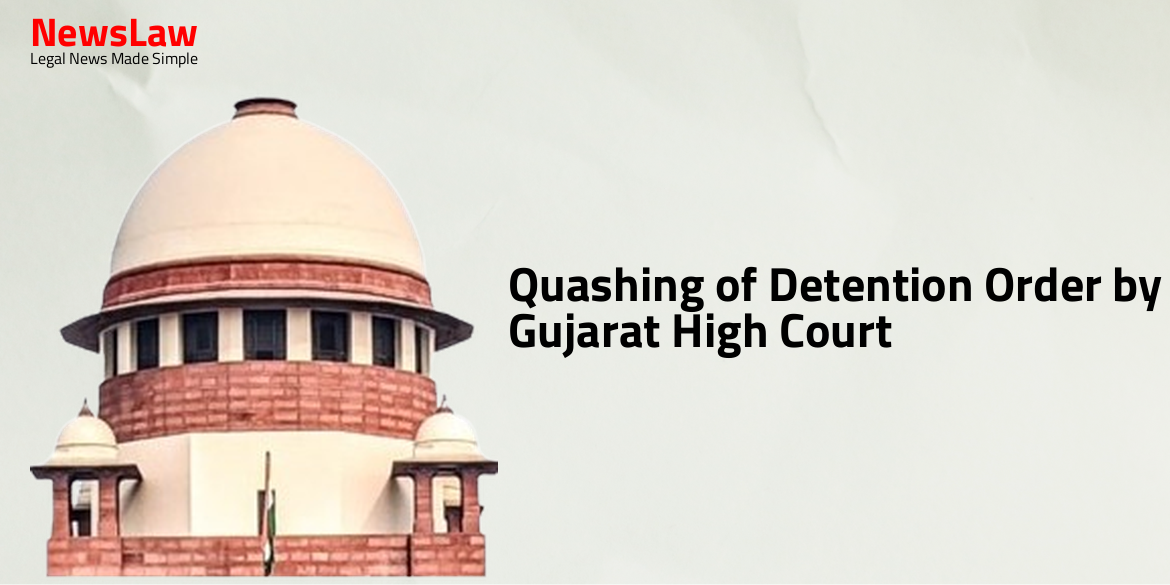In a significant ruling by the High Court of Gujarat, the judgment pertains to the quashing of FIR and subsequent proceedings in a financial dispute case. The petitioners sought relief under Articles 14, 226, 227 of the Constitution read with Section 482 of the CrPC after an amicable settlement with the complainant. The Court addressed the misuse of criminal courts to settle civil disputes and stressed the necessity of proving fraudulent or dishonest intent for criminal prosecution. Find out more about the Court’s decision in this case.
Analysis
- The High Court has wide powers under Section 482 of the CrPC but caution must be exercised in its use.
- The decision made using this power should be based on sound principles.
- The Court should refrain from giving prima facie decisions when facts are incomplete and hazy, especially when evidence has not been presented.
- In this case, the original complainant filed an Affidavit stating an amicable resolution of the dispute and no objection to quashing the proceedings.
- The impugned FIR was filed against the present petitioners at the instance of a complainant, alleging financial wrongdoing.
- The inherent power should not be misused to stifle a legitimate prosecution.
- The petitioners seek to quash the FIR and subsequent proceedings under Articles 14, 226, 227 of the Constitution read with Section 482 of the CrPC.
- The disputed amount of Rs. 1,50,000/- has been received back by the complainant
- Settlement has been arrived at between the parties
- Complainant has filed an affidavit of settlement affirming the private nature of the dispute
- Continuation of criminal proceedings would cause unnecessary harassment to the petitioner
- Continuance of trial after mutual settlement would be a futile exercise
- Quashing and setting aside the impugned FIR and all consequential proceedings under Section 482 of the Cr.P.C. is deemed appropriate
- Referring to the need for dishonest inducement to deceive a person for the offense under Section 420 of the IPC
- Emphasizing that a breach of contract does not automatically lead to criminal prosecution for cheating unless fraudulent or dishonest intention is proven from the beginning
- Highlighting the misuse of criminal courts to settle civil disputes and the need for criminal courts to take cognizance only where the ingredients of criminal offenses are present
- Order for the release of the petitioners if in jail and not required for any other case
Case Title: SAGARBHAI MOHANBHAI AMIN Vs. STATE OF GUJARAT
Case Number: R/CR.MA/9133/2024



